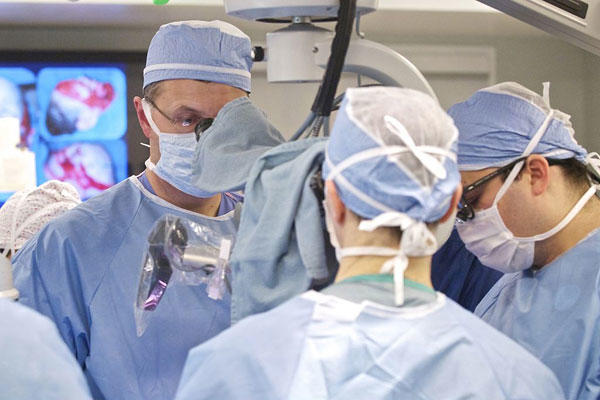An official with the only national tissue banking organization in the U.S. urged lawmakers to require the Department of Veterans Affairs to buy biological implants from tissue banks and distributors accredited by his group.
Frank Wilton, chief executive officer of the American Association of Tissue Banks, said his organization backs proposed legislation that will require the VA to adopt a standard protocol for buying and tracking biologics, but said it could be a better bill.
Wilton said AATB was established in 1976 by doctors and scientists who had helped set up the country's first ever tissue bank in 1949, the U.S. Navy Tissue Bank. He said the founders saw the need for a national organization to develop standards for what they saw would be a growing part of health care.
Biologics, used in medical and dental procedures, have come under increased scrutiny by lawmakers after they learned in 2012 that the VA was exercising little control over purchases. The VA was spending millions more than necessary each year because of poor oversight.
Both the VA and the Defense Department began investigating purchases of tissue when they learned one seller had previously done business with a supplier who was convicted of harvesting materials from illegally acquired cadavers.
They also grew concerned in 2012 upon learning that questionable tissue from a company in Ukraine may have made its way into the U.S. supply chain through the German subsidiary of an American company.
Wilton testified Tuesday before the House Veterans Affairs Subcommittee on Oversight and Investigations, which is considering the legislation to track biological implants in veterans.
Veterans' groups have also pressed Congress to make the VA more accountable for the biologics it buys and implants.
Davy Leghorn, an assistant director for the American Legion, told the subcommittee on Tuesday that while the VA claims to be able to get problematic biologic products out of the inventory within 24 hours of a recall, it still has "no clear policy on how veterans who have already received implants are tracked."
"It's not enough to cut off the problem at the source," he said. "Attention must be paid to veterans who are already downstream in the process."
The VA is one of the largest purchasers of surgical implants, spending about $563 million on them in 2012 -- an increase of 28 percent since 2008, the Government Accountability Office found.
"While I understand that some of you may be concerned about imposing such a requirement because we are a private entity, I would just note that there are other instances in which the VHA [Veterans Health Administration] has decided that private accreditation is not only appropriate, but required," Wilton said.
For example, he said, VA medical facilities have to be awarded and then retain accreditation from a private accrediting agency.
He also said that civilian medical centers already require that biologics come from companies and intermediaries certified by the AATB.
Not requiring accreditation for biologics suppliers on the federal purchasing schedule is cause for concern about "the overall safety and quality of the products" provided to veterans, he said.
-- Bryant Jordan can be reached at Bryant.Jordan@monster.com.



























